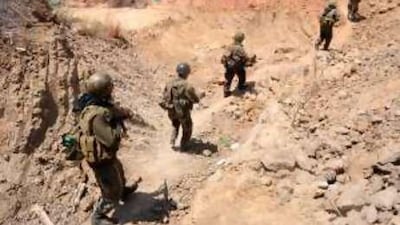KURUNEGALA DISTRICT, SRI LANKA // With a grim face, Mahendran recalls the scene five months ago that left him with a bullet lodged in his shoulder and what he thought was an exit out of one of the region's longest-running and bloodiest civil wars. "It was a bloody, bloody scene. Corpses lay everywhere. The ground was shaking and shrapnel flew everywhere."
Just five months ago, this 29-year-old infantry soldier in the Sri Lankan army's 12 Gajaba Regiment exchanged fire with fighters from the Liberation Tigers of Tamil Eelam (LTTE) in their stronghold in the island's northern Wanni region. A bullet scraped the back of his skull and lodged in his upper shoulder, sending him back to his rural home. But now as fighting intensifies in Wanni, Mahendran has again received his marching orders. Barely recuperated, he has left his mud hut and returned to the battlefield.
The Sri Lankan army said last weekend that it was within two kilometres of Kilinochchi, the de-facto capital of the rebels, and it appeared the island's civil war was moving towards a decisive show down. As troops push into the interiors of rebel-held territory in the Wanni, pledging to crush the Tigers before the end of the year, the government is leaving no stone unturned to win this war, which has simmered for more than a quarter-century.

